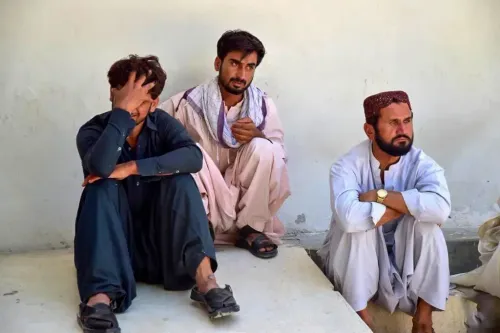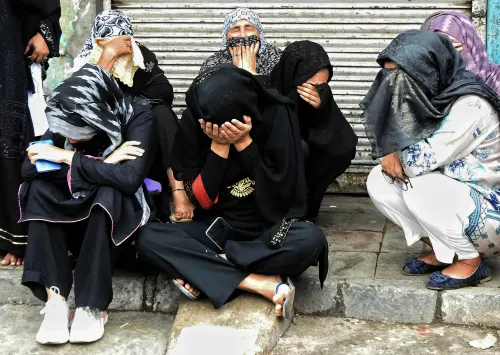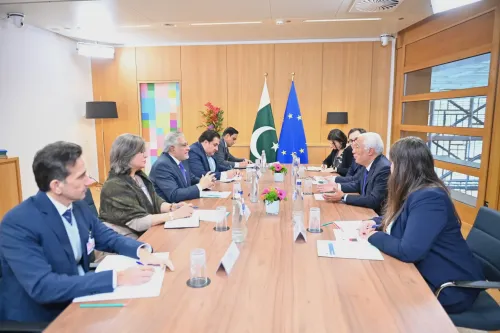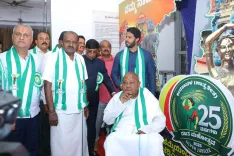Are Extremists Attempting to Transform the Bangladesh Army into an Islamic Military Order?
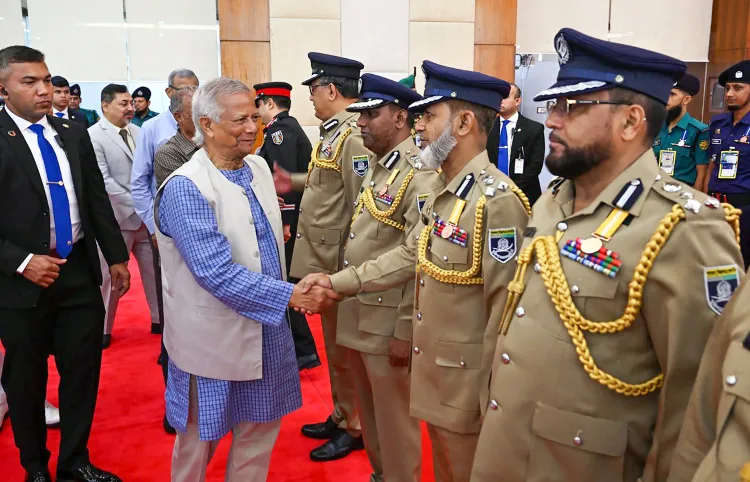
Synopsis
Key Takeaways
- Radical influence: Islamic extremists are attempting to reshape the Bangladesh army.
- Imprisonment of officers: Several active army officers are facing serious allegations.
- Threat to secularism: This shift poses risks to Bangladesh's secular and democratic values.
- Political implications: The situation may disrupt the balance of civil-military power.
- Need for vigilance: It is crucial for the nation to remain alert against extremist threats.
Dhaka, Nov 21 (NationPress) Islamic radicals are reportedly attempting to reshape the Bangladesh army into an Islamic military organization as the interim government, headed by Chief Advisor Muhammad Yunus, gears up to imprison 15 active army officers on allegations of severe crimes linked to the previous administration of Sheikh Hasina.
The implicated officers are currently held in military detention. However, the International Crimes Tribunal (ICT), which is prosecuting these individuals, has requested their transfer to civilian custody. Following an October hearing, these officers have been confined in a sub-jail located in Dhaka Cantonment, monitored by prison authorities, as detailed in a report by the Asian News Post. The prosecution has formally accused 28 individuals, including Bangladesh's former Prime Minister Sheikh Hasina and 23 senior and mid-level current and past army officers, primarily due to two longstanding cases concerning enforced disappearances and torture.
The report states, "At a moment when Jamaat-e-Islami, supported by Pakistan's Inter Service Intelligence, is subtly extending its influence within a faction of the Bangladesh military, this action may diminish the morale of both officers and personnel in the army. In the long run, the Bangladesh military could evolve, akin to the Pakistan army, into an Islamic radical force." Analysts suggest that this prosecution is a deliberate maneuver aimed at demoralizing a professional army that played a pivotal role in stabilizing conditions during last year’s unrest in Bangladesh. They assert that implicating senior officers such as Major Generals and Brigadiers is part of a strategy designed by fundamentalist factions to weaken the Bangladesh Army as a professional entity, thereby facilitating the spread of fundamentalist Islam across the nation.
Additionally, tensions have surfaced between the Bangladesh army and Yunus regarding discussions on the Rakhine corridor. Army Chief General Waker-Uz-Zaman expressed his disapproval of Yunus' decision to consult the United Nations about this corridor without prior consultation with the army. The Bangladesh Army Chief emphasized that the interim government should refrain from making such policy decisions and insisted on elections to be conducted in 2025. This stance has not been well-received by Jamaat-e-Islami and other radical Islamic groups, who prefer postponing elections until they have fortified their positions.
The report notes, "Islamists perceive the secular Bangladesh army, founded on the principles of the 1971 Liberation War, as an obstacle to the proliferation of Islamist ideologies within the nation. They aim to erode the traditional secular democratic values of Bangladesh to further their hardline Islamic agenda. During the time Jamaat-e-Islami participated in the Bangladesh government alongside the ruling Bangladesh Nationalist Party, they seized the opportunity to infiltrate their cadres into the armed forces. These individuals operated discreetly and remained dormant during Sheikh Hasina's administration, waiting for a political shift in the country."
The report referenced the 2009 mutiny within the paramilitary Bangladesh Rifles, which was suspected to have been influenced by Jamaat, whose leader Abdur Razzak faced questioning by the CID of Bangladesh following the failed coup attempt. Now, with the interim government in power and a political vacuum present, Islamic radicals are attempting to convert the Bangladesh army into an Islamic military order, mimicking the structure of the Pakistan army.
"In Pakistan, the alliance between the military and Islamic extremism has been mutually beneficial. While the army has been permeated by radical Islamic factions, it has also utilized radical Islamic groups to fulfill strategic objectives. The army has employed Islamist terrorist organizations like Lashkar-e-Taiba and Jaish-e-Mohammed to conduct a proxy war against India in Kashmir. The infiltration of radical Islam into the Bangladesh army would weaken the country’s democratic institutions and disrupt the fragile balance of civil-military power, ultimately jeopardizing Bangladesh's political stability and posing a grave threat to the nation. Furthermore, should the army remain passive, Islamic forces may feel emboldened to launch attacks against minority groups such as Hindus, Buddhists, and Christians. In Pakistan, where radical Islam is deeply entrenched, the minority population has dwindled to approximately three percent; in contrast, minorities in Bangladesh constitute about nine percent of the total population," it underscored.

